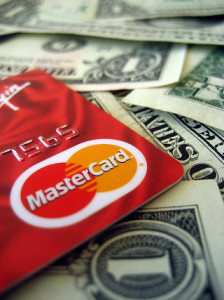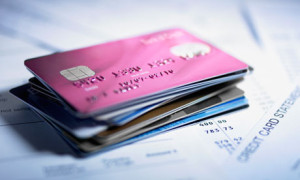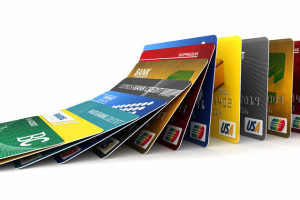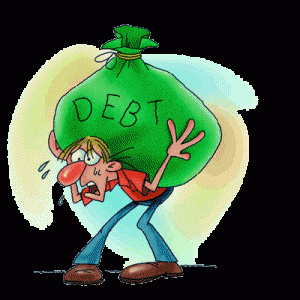May 8, 2013
 Your credit card, while serving as a powerful tool for all your financial needs, can lead you to a world of trouble if you don’t use it the right way. Credit cardholders must avoid getting trapped in a deep hole called debt. However, they often find it hard to consider the immense amount of expenses, especially if a bank already gave them enough credit to just charge these costs. Moreover, this powerful financial tool can oftentimes be considered as the worst form of finance because of the fact that incurred debts are classified as unsecured. Also, they carry an interest rate that is higher than a home or car loan. Compared to other types of loans such as home mortgage or student loan, credit card debts are not tax deductible.
Your credit card, while serving as a powerful tool for all your financial needs, can lead you to a world of trouble if you don’t use it the right way. Credit cardholders must avoid getting trapped in a deep hole called debt. However, they often find it hard to consider the immense amount of expenses, especially if a bank already gave them enough credit to just charge these costs. Moreover, this powerful financial tool can oftentimes be considered as the worst form of finance because of the fact that incurred debts are classified as unsecured. Also, they carry an interest rate that is higher than a home or car loan. Compared to other types of loans such as home mortgage or student loan, credit card debts are not tax deductible.
If you have a credit card, you don’t want to use it on certain things or events that could definitely spell disaster on your financial and economic standing. In fact, many experts say that you should not use it in these situations:
- Paying for your college tuition. Using the credit card while in college is never good to begin with, because of the consequences that doing so may bring. Many college graduates have experienced dealing with credit card debt during their time at school, and their financial woes continue to pile up as they advance in age. For one, upon graduation from college, you might not be able to find a job at the soonest possible time, which would make it hard for you to earn income to pay off your credit card debt.
- Paying for your wedding costs. In such a prolific event like a wedding, planning is a key priority. Saving for years with your soon-to-be wife or husband for the significant day is a very important way if you want it to be extra special and start your married life on the right track. However, you shouldn’t use your credit card in financing your wedding costs, as this will backfire, causing you newlyweds to deal with debt during your first few years of marriage.
- Going on a vacation spree. If you are planning for a vacation, it is best that you save on cash money for your out-of-pocket expenses rather than using your credit card all throughout your out-of-state or out-of-country trip. Financing your trips through the use of your credit card will just create a mountain of debt upon your return.
- Paying for your medical expenses. Dealing with the costs of your medical treatment can be very daunting, but that does not mean you should resort to using your credit card to finance them. Some health providers offer rate adjustments and payment plans that might be suitable for you.
Using your credit card is still important, but using at frequently and as a means of covering much of your finances is not good at all. Next time you encounter the abovementioned situations, think twice before dealing with your finances. Use your credit card in moderation, or suffer consequences along the way.
Tags:
credit,
Credit Card,
Credit Card Debt,
debt,
economy,
financial planning,
money
March 6, 2013
 A credit card is a form of loan, albeit one involving more flexible terms and smaller sums of money than a personal loan or a mortgage. However, like other types of loans, credit cards also have interest rates. You need to understand more about how interest rates work, and how they will affect you and your finances, before taking out a credit card.
A credit card is a form of loan, albeit one involving more flexible terms and smaller sums of money than a personal loan or a mortgage. However, like other types of loans, credit cards also have interest rates. You need to understand more about how interest rates work, and how they will affect you and your finances, before taking out a credit card.
Why interest rates can be confusing
At the moment, credit card issuers can choose one of 14 different methods for charging interest. These methods involve calculating interest in different ways. So, if you have two credit cards which seem to have the same interest rates and you use them in exactly the same way, one could cost you more because the provider has decided to use a different method to work out that interest.
APR
Another reason why interest rates are confusing is because the industry uses acronyms such as APR to talk about interest. APR (Annual Percentage Rate) is a standard way to work out the cost of credit, taking into account the interest rate and any other charges. This rate shows you how much it will cost to borrow money over the course of a year.
It should be the case that credit cards with lower APRs give you the best deal, but it doesn’t always work out that way. This is because many cards start and stop charging interest on transactions at different times. However, most lenders offer a ‘typical APR’ when advertising credit cards. This is because when you apply for a credit card, you may be offered a rate based on your credit history and personal circumstances. According to a Guardian factsheet, banks only have to offer their advertised APR or a better rate to 66% of potential customers.
When interest rates will affect you
If you pay your balance off in full every month, you probably won’t need to worry about interest rates. However, interest rates will affect you if:
You only make minimum payments off your total balance every month
You pay anything less than the full balance each month
You use your credit card to take money out of a cash machine
If you meet any of these criteria, you should be looking to find the lowest interest rates when carrying out a credit card comparison. If you do your research and take the time to work out how much a credit card will cost you in the long term, you are likely to end up with a good deal and a way of borrowing money that suits you.
Tags:
credit,
Credit Card,
debt,
financial planning,
Interest Rates,
money,
Rates
February 27, 2013
 Although your bad credit score can sometimes feel like a rain cloud looming over your chances for financial freedom, there are opportunities for the sun to shine through. It’s not all bad news when it comes to your poor credit score, because despite common misconceptions, you can receive a credit card, apply for student loans, and access emergency cash. And the best part of all is that it is always possible to repair your credit score.
Although your bad credit score can sometimes feel like a rain cloud looming over your chances for financial freedom, there are opportunities for the sun to shine through. It’s not all bad news when it comes to your poor credit score, because despite common misconceptions, you can receive a credit card, apply for student loans, and access emergency cash. And the best part of all is that it is always possible to repair your credit score.
Credit Card Options
Applying for a credit card is a great way to build your credit, but unfortunately your bad credit score can limit your credit card options. Don’t be discouraged though, because there are multiple ways in which you can still receive a credit card despite your low score.
People with bad credit often take the secured credit card route. A secured credit card functions much like an unsecured credit, but you pay a security deposit and a monthly fee. You also will most likely experience a lower credit line, which reflects the value of your cash deposit. Only consider this option though if you can pay your monthly dues, otherwise you will very quickly rack up late charges and high interest.
You can also apply for a credit card with a cosigner who has a good credit score. It’s important however that both you and your cosigner understand that if you fall behind on payments, your delinquency will affect not only your credit score, but also your cosigner’s credit score. You won’t want to jeopardize your cosigner’s score on top of your own, so refrain from involving a cosigner if you are unable to make timely payments.
Students Loan Opportunities
Fortunately, you’re not out of luck when it comes to financial aid for higher education. Although you may not qualify for all loans, you do have options.
One option you can turn to is a private student loan through lenders such as Chase, Citibank, and Wells Fargo. In the same way that you can apply for a credit card with a cosigner, most of these lending houses will require a cosigner with an upstanding credit score. In this case, the cosigner agrees to pay for the loan if you fail to make payments. These loans are often associated with higher interest rates though, so only sign on if you understand all of the terms and conditions.
You could also apply for scholarships and grants to receive funds for school. Institutions will award you scholarships based on your athletic or academic performance, while they link grants to your financial situation and need. Scholarships and grants are more attractive options because they are monetary gifts, which you do not repay.
Emergency Loans Access
While your bad credit score will make it difficult to take out traditional loans from banks and lenders, there are bad credit loans, which can help cover life’s unexpected emergencies. Payday Loan lenders usually do not review your credit report, but they do generally expect you to repay the loan by the following payday. Failing to meet payment deadlines will result in expensive fees and high interest, so it is best to only take out this loan if it’s a one time situation, if you understand the terms of the loan, and if you are able to repay the loan.
You Can Always Improve Your Score
It’s never too late to start building your score, and because it can take years to recover from financial delinquency, it’s best to start fixing it now. Begin by repaying any debt that you owe. This may mean contacting your creditors to establish repayment plans, but be sure to demonstrate your willingness to pay back the money.
While you will want to continue using your credit cards to build your credit, use them sparingly and only for small purchases that you are capable of paying on time. In addition to paying your credit card bills on time, you should strive to pay your rent, utilities, and any other bills on or before their due dates as well.
Make a conscious effort to cut back on spending, save money, and consider consulting financial advice if your finances seem unmanageable. Bad credit is not a permanent situation, so take the time to improve it so that you can experience a brighter financial future.
Chloe Mulliner is a writer and editor for several consumer websites related to credit and personal loan options.
Tags:
credit,
Credit Score,
economy,
money,
personal finance,
Repair
February 23, 2013
 There’s a lot of buzz about the implications of bad credit and the importance of maintaining good credit, but many of us are still unclear about certain aspects of our credit reports. How long does a bad payment last on your record? Can you receive a loan with no credit history? And what about your job, is it really legal for an employer to snoop at your credit report? The following top three things you should understand about your credit report will answer all of those pressing questions and more.
There’s a lot of buzz about the implications of bad credit and the importance of maintaining good credit, but many of us are still unclear about certain aspects of our credit reports. How long does a bad payment last on your record? Can you receive a loan with no credit history? And what about your job, is it really legal for an employer to snoop at your credit report? The following top three things you should understand about your credit report will answer all of those pressing questions and more.
1. Bad Credit Will Hang Around
Your credit history from today and two years back accounts for around 70% of your credit report, while the other 30% dates back seven to ten years. Good credit can hang around for around ten years while your last payment delinquency may show up for seven years. This is important to keep in mind, because one bad payment can haunt you for years, despite the fact that you’ve maintained a clean record ever since.
With that being said, your credit score can change on a day-to-day basis for various reasons such as if you apply for a new credit card, declare bankruptcy, or miss a payment. Generally though, your score will not change more than 30 points in one quarter. In addition, your credit score may vary depending on which of the credit bureaus reports your score, as each has their own scoring methods.
2. You Can Still Receive Loans With Bad or No Credit
If you have poor or no credit, there are options available that may prevent banks and lenders from turning down your loan request. eCredable.com, for example, offers you an All My Payments (AMP) credit rating, which takes into account your monthly payment obligations such as rent, utility, and cell phone bills to help establish your creditworthiness. These kinds of payments generally do not show up on the traditional credit bureau reports, but they can provide proof of your payment history. Some, but not all lenders will accept this form of nontraditional credit worthiness.
In the case of an emergency, you can apply for loans for people with bad credit. Typically, these bad credit lenders do not ask to see your credit report, so it usually does not matter if you have bad or no credit. But because payday lenders are taking a risk by supplying you with a loan, they do charge high interest rates and fees. Only apply for a cash advance if it is an emergency situation and if you are capable of paying back the loan in short order. Also, read and understand all of the loan terms before applying.
3. Your Future Employer May Judge Your Credit Score
While it’s not uncommon for credit card companies and landlords to check out your credit report, now potential employers are gathering around to sneak a peek too. And yes, it is perfectly legal for them to do so. A 2010 Society for Human Resource Management survey revealed that 60 percent of employers conduct credit checks on prospective job candidates.
These employers are using your credit score as a judgement of your character and financial reputation. Employers, especially those in financial fields, want to determine your level of monetary responsibility before allowing you to handle company finances.
Even though a bad payment can stick around on your credit record for a while, this should not discourage you from taking strides to improve it. And regardless of whether you can still borrow money from a lender with poor credit, your future employer may want to see your score, so you should always build your score to the best possible number to help prevent any possible obstacles. If you’re still experiencing uncertainty when it comes your credit score, do not hesitate to contact a financial advisor or credit counseling organization.
Tags:
credit,
Credit Score,
Debts,
economy,
financial planning,
loans
October 21, 2012
 With the average household debt increasing constantly all over the UK, homeowners everywhere are struggling to keep their increasing monthly payments under control. Without the proper debt management solution, their attempts are frequently accompanied by failure and most of the times lead to a growth of their monthly payment that simply cannot fit in their budget.
With the average household debt increasing constantly all over the UK, homeowners everywhere are struggling to keep their increasing monthly payments under control. Without the proper debt management solution, their attempts are frequently accompanied by failure and most of the times lead to a growth of their monthly payment that simply cannot fit in their budget.
The various credit card related debt as well as the other large payments like mortgages, education or automobile loans are getting out of hand, an aspect which reflects in the rising number of people filing for bankruptcy. However, an alternative road to financial security and freedom comprises of corroborating your credit card debt with a secured loan. Let’s find out why.
1. The overall monthly interest paid is reduced
The principal issue and the main generator of credit card debt is the high interest rate in association with the additional charges. In essence, unsecured loans have an innate high interest rate that guarantees your lender he will be able to recuperate at least a part of his investment if you are not able to pay your debt. On the other hand, homeowner loans are secured against equity, which means that the risk you pose for the creditor is lower. Therefore, the interest rates of the loan are substantially reduced.
2. Your income/spending budget can be calculated easier
When you have a plethora of credit cards that have to be paid on different dates and each of them requires minimum monthly payments, your debt can easily spiral out of control. It’s hard enough to stay up to date with the major loans, so adding credit cards into the equation complicates things immensely. However, since a single affordable payment can be easily integrated within your budget easier and it eliminates effectively the need to remember every other single debt you have, you are greatly simplifying your finances.
3. A single creditor to deal with
The more unpaid credit cards you own, the more calls you will receive from the lenders and banks. As your debt grows – and, without the proper solution, it will – you will start to receive more and more calls from the creditors, often at the most inappropriate moments. However, since the secured loan consolidates all debts into a single account and the lender takes charge of handling your finances, you can be certain that your other creditors will no longer trouble you.
4. Enhanced affordability for the monthly payments
Secured loan consolidation doesn’t only imply that the value of the interest is lower. In fact, you can also specify a longer repayment period, which permits you to minimize the monthly payments to a sum that you feel comfortable with. True, the total interest paid is directly proportional to the span of the repayment period, but you will be able to manage your household budget easier.
5. You won’t be tempted to spend more than you should
What every credit card actually represents is a lure for overspending. In other words, how great is it to purchase something you want – not necessarily need – now and pay for it later? Cutting up your credit cards and consolidating the debt with the secured homeowner loan is just the cure you need for that temptation!
Tags:
budgeting,
Credit Card Debts,
Credit Cards,
debt,
financial planning,
home loans,
investments,
L:oans,
money,
personal finance
 Your credit card, while serving as a powerful tool for all your financial needs, can lead you to a world of trouble if you don’t use it the right way. Credit cardholders must avoid getting trapped in a deep hole called debt. However, they often find it hard to consider the immense amount of expenses, especially if a bank already gave them enough credit to just charge these costs. Moreover, this powerful financial tool can oftentimes be considered as the worst form of finance because of the fact that incurred debts are classified as unsecured. Also, they carry an interest rate that is higher than a home or car loan. Compared to other types of loans such as home mortgage or student loan, credit card debts are not tax deductible.
Your credit card, while serving as a powerful tool for all your financial needs, can lead you to a world of trouble if you don’t use it the right way. Credit cardholders must avoid getting trapped in a deep hole called debt. However, they often find it hard to consider the immense amount of expenses, especially if a bank already gave them enough credit to just charge these costs. Moreover, this powerful financial tool can oftentimes be considered as the worst form of finance because of the fact that incurred debts are classified as unsecured. Also, they carry an interest rate that is higher than a home or car loan. Compared to other types of loans such as home mortgage or student loan, credit card debts are not tax deductible.




Recent Comments